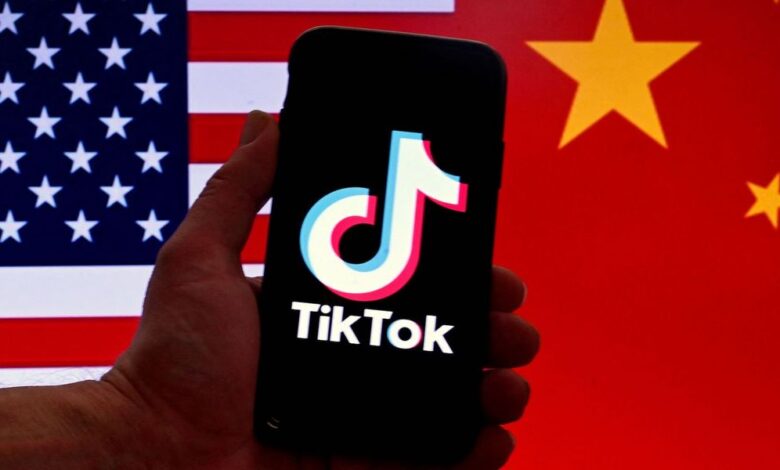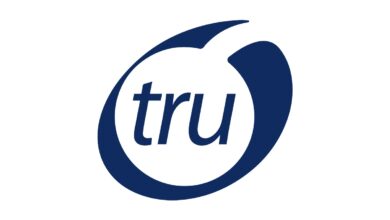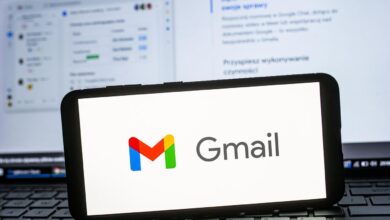Blaze News investigates: Cybersecurity expert says he accidentally discovered ‘disturbing’ data transfers from TikTok: ‘The app should be banned’

While TikTok influencers rage against U.S. politicians for passing legislation against their favorite social media platform, one cybersecurity expert said a “disturbing” incident with TikTok led him to support the proposed law.
The law was passed by Congress and signed by President Joe Biden in April. It forces the parent company of TikTok to either sell the platform or face a ban among users in the U.S. A campaign by influencers encouraged by the platform backfired in March when users harassed members of Congress and at least one threatened to commit suicide if the law passed. Rather than dissuade the politicians, the irrational furor substantiated the dangers of the app.
‘Really odd, and it jumped out at us.’
Steven MacKeon is the founder and CEO of MacguyverTech and MacNerd, and he spoke to Blaze Media about the incident that led him to support the restrictions against TikTok.
MacKeon said that his company had been hired by a U.S. company that had been targeted by a Russian hackers using BlackBit ransomware. The hacking technique involves a malicious actor locking up a victim’s data remotely and demanding payment in exchange for the data to be released back to the owner’s possession.
MacKeon said that his company began monitoring devices of the company to see how the hackers were manipulating data when he saw something “disturbing,” as he put it.
“So we had a lot of unique data show up from China,” he explained. “And the data was going from the application to China, and we took a closer look, it was actually Tiktok data from customers or their clients who were using Tiktok while they were working.”
He said that normally that digital information would be sent to data centers in the U.S., but that was not the case for TikTok.
“So it’s really odd, and it jumped out at us. We didn’t find it on purpose; it was just something that we found by doing an investigation for something else,” said MacKeon
MacKeon said the specific details of the case could not be released, as the hacking incident was still under investigation. He went on to say that he had heard personally from a colleague in the industry who saw the exact same transmissions of data from the TikTok app.
“So at least from that standpoint, I think it’s a little bit a little bit concerning,” he added.
Other evidence of data collection has been reported by researchers including the Network Contagion Research Institute, which concluded that “TikTok systematically promotes or demotes content on the basis of whether it is aligned with or opposed to the interests of the Chinese Government.”
A history of TikTok regulation
Concerns about the possibility of the communist Chinese government weaponizing the data garnered through the TikTok app has led local governments to pass their own bans to protect state offices.
In December 2022, Texas Gov. Greg Abbott (R) signed a bill banning the use of TikTok on official devices used by state employees. The move was widely seen as the precursor to a federal ban.
“While TikTok has claimed that it stores U.S. data within the U.S., the company admitted in a letter to Congress that China-based employees can have access to U.S. data. It has also been reported that ByteDance planned to use TikTok location information to surveil individual American citizens,” he explained at the time.
Only three months later the federal government banned TikTok from devices used for official government business.
Silicon Valley strikes back
Some have questioned whether bipartisan effort to separate TikTok from communist Chinese control is actually an attempt by U.S. tech companies to use the power of the government to slap down one of their most formidable competitors.
“When you step back and follow the money, it becomes clear. TikTok, through a superior algorithm, was able to beat Silicon Valley to market dominance with a product that conquered our youngest age demographic because it was just better at locking them in as users. Despite pushing Reels and Shorts and spending billions, Meta’s Facebook and Google’s YouTube could not catch up,” wrote Peter Gietl for Blaze Media in March.
He went on to point out how those companies have spent millions in order to gain influence in Congress. Gietl also gave a scathing assessment of the RESTRICT act, which not only allows the government to ban TikTok but expands the power of the federal government to control speech on other platforms.
“This act can potentially be the most invasive and authoritarian law passed in the last hundred years,” Gietl continued.
“With a stroke of a pen, this agency will have dominion over all digital communications with the explicit power to ‘enforce any mitigation measure to address any risk.'”
Glenn Beck, the co-founder of Blaze Media, came out against the legislation after hosting a debate between Republican members of Congress on both sides of the issue.
“I don’t trust a government that is seeking more control over its people while making its bed with giant corporate tech and China. I don’t trust a government that doesn’t seem to care about its people over oligarchs. I can’t give any more power to the rich, the corporations, the lawyers, and I won’t give any more power to a president who doesn’t defend the Constitution at all costs,” said Beck.
Gietl’s assessment is even more dire.
“Even if you think China is the most vicious dictatorship on earth and TikTok has been a blight upon the minds of American teenagers, giving the government this power is a fatal step toward the final end of our constitutionally guaranteed form of government,” he concludes.
Is TikTok worse than Instagram or Facebook?
MacKeon addressed the argument that TikTik wasn’t doing anything substantively different from the data collection made by other platforms like Instagram or Facebook.
“I think all of them are in a data collection business,” said MacKeon. “But what they’re doing with that data collection, I think, is a little different. Because like companies like Facebook or Meta, and you got like Google and other companies that are basically under the umbrella of the American government, and so that also means they’re somewhat regulated, like health care, but they have to abide by certain practices and rules.
“In China, they’re not really caring about that as much,” he added.
To support his claim, MacKeon points to the well-documented fact that China does not allow TikTok to operate within its borders but instead has a different version of the application feeding the population different messages from those served to the rest of the world.
“It magnifies the good qualities in human beings, it’s more educational, mindful; ours is not. And ours is banned in China, but their version is allowed. Why are there two versions? If this is such a good thing, why isn’t it the same in mainland China?” he asked rhetorically.
“Why can’t the Chinese version be here in America and help people be more mindful and helpful?” he added. “Why is that other one banned? There’s kind of a weird situation here; you’ve got this government that controls everything in China, and unfortunately I think it has bled over into the U.S.”
Former Google employee Tristan Harris reported the difference between the two apps in an interview with “60 Minutes” on CBS in 2022.
“It’s almost like they recognize that technology is influencing kids’ development, and they make their domestic version a spinach version of TikTok, while they ship the opium version to the rest of the world,” Harris explained.
“If you’re under 14 years old, they show you science experiments you can do at home, museum exhibits, patriotism videos, and educational videos,” he said of the app version allowed in China.
‘Profit equals screen time and screen time equals advertisers.’
More importantly, the evidence is growing that any addiction to social media apps can be detrimental to the lives of the users and their families.
“These things are really good at giving dopamine hits to keep you kind of interested. The sweet spot of TikTok is about seven seconds, but how much value are you getting from seven seconds?” MacKeon continued. “They’re meant to just get your attention, but I think they’re really killing the dynamics of communication.”
Apart from shortening attention spans, there are numerous examples of “TikTok challenges” that went viral and led to vandalism, serious injuries, and even deaths.
“Unfortunately, these corporations are driven by profit, and profit equals screen time and screen time equals advertisers,” he added.
MacKeon also says that his stand against TikTok has put him at odds with his friends who make a living from the popular application.
“I have a lot of friends that are influencers and make their living off of TikTok and over social media platforms. They are not happy about my position here,” he explained. “Even though I’m friends with them, I think this is not just about you making a couple of bucks and for your livelihood. This is about your well-being.”
‘A black void of time’
MacKeon said that no matter what happens with TikTok, anyone who wastes too much time on any social media platform should reconsider their priorities and focus on life apart from a screen.
“Honestly, I think this from my own experience, limiting your time is a good thing. Too much of a good thing can become a bad thing; it’s like the law of diminishing returns,” he said. “I see my friends just swiping all day long, and the world kind of disappears around them. It’s like a black void of time.”
He says he has stopped using TikTok for many months, and he believes his life is healthier with less exposure to social media altogether.
MacKeon ended with a warning that the dark side of social media is likely to worsen as artificial intelligence improves the ability of apps to deceive users and make them more addicted.
“We do AI development; we’re an AI-enabled shop as well. I think AI is a great accelerator. All these things are going to get faster with greater frequency,” he explained. “How will you know if that’s a real person you’re communicating with on TikTok? They’ve already gotten so good it’s hard to distinguish between what is human and what is not.”
The bill gives ByteDance, the parent company of TikTok, nine months to sell the platform or face a ban in the U.S. The company has said it is filing a lawsuit to stop enforcement of the bill.
Blaze Media reached out to TikTok for a comment about MacKeon’s claims, but while an attorney for the company asked for more details about the accusation, no response was provided.
Like Blaze News? Bypass the censors, sign up for our newsletters, and get stories like this direct to your inbox. Sign up here!



